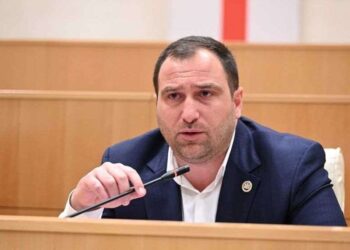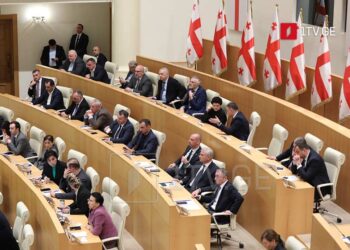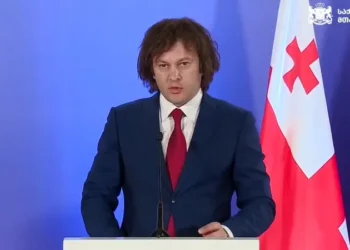It wouldn’t be an overstatement to say that Georgia’s progress in the last thirty odd years has been hampered by the destructive interaction between the ruling political force and the opposition to it. This may well be a long-term incurable disease that the Georgian post-soviet political tissue is afflicted with. The question now is if this nation has enough political acumen and intellectual potential to find the cure. The current most descriptive term used, one that fairly well reflects the situation, is ‘polarization,’ but if we dig deeper, we will find the word is only a perfunctory attempt to define the true character of the long-standing vitriolic political interface in this society.
To productively elucidate on the phenomenon in question, one might need to do some profound ethnic, psychological, anthropological, epistemological and ethical research, which is practically impossible to do in a brief newspaper article on an unassuming readable level. And still, one could make at least an amateurish go of the subject to express a couple of soothing and optimistic thoughts, which is a good thing to do because all of us here in this unending futile clash between the opposed political forces of Sakartvelo feel that something is really wrong with us: we have not learnt in the post-soviet decades how to be agreeably logical when we interact in an attempt to solve our social, political and economic problems.
The best clue I could provide towards making a practicable conclusion is to have a close look at the way regular Georgians talk to each other on social media. It is utterly symptomatic. For instance, the indigenous Facebook population in Sakartvelo, consisting of males and females of various ages and natures, often talk to each other in a strained, venomous manner. There is an abundance of hearts and smileys too, but compared to the habitual spiteful interactions, the number of benevolent messages is negligible. It is in our character to be hurtful and vindictive if we don’t like somebody else’s opinion crossing our paths; we usually attack our virtual adversary vehemently, with bitter lexical weaponry, pleasurably anticipating the imaginable fatal termination of the opposite side. Cuttingly cruel and maliciously sharp vocabulary is in our blood. We enjoy being nasty and mean towards those who oppose us. And our national political arena is a carbon copy of what we look like on the internet. Our political behavior is a direct moral and behavioral reflection of our internet social life, within which we would rather be harsh than kind, acerbic than sweet, upsetting than soothing, cruel than compassionate.
Where does this viciousness and brutality come from? No clue! On the whole, we are kind and well-meaning people, but as soon as we find ourselves in the thickly mined field of political interaction, our tongues (not hearts!) momentarily turn into a lethally poisonous tool of discourse. Normally, we are considered to be pleasant, friendly and caring people, and we typically go through a weird metamorphosis when we hit the political battleground, becoming noxious, unkind and rancorous human beings, poisonously contaminating the entire socio-political environment. Why? There must be some serious reason for this, and as I have suggested before, deep psychoanalytical research into the situation could help the complicated political process in Georgia, which has always been full of absolutely pointless and harmful acrimony and hostility.
What we don’t need in this country is this much unbridled malevolence in the political arena, nor on social media. This type of disagreeable and ruthless interaction among those who do politics and thus determine this nation’s future is not only disappointing to our educated electorate, but also distressing and upsetting, which reflects badly on our political morale and goodwill- toxic and corrosive effect which might be conducive to a deadly consequence.
Isn’t it awfully regrettable that talented people like ours should be forced into interminably listening to these caustic, hateful and pitiless verbal escapades that the majority of our politicians and social media residents offer each other on an everyday basis?! This is just painful, saying nothing about the horrible image we are creating in the eyes of our foreign partners and helpers. If I were our political folks, I would learn how to get rid of the foul language and learn how to win those political bouts without being verbally so horrid, piercing and so fiercely backbiting.
Op-Ed by Nugzar B. Ruhadze














